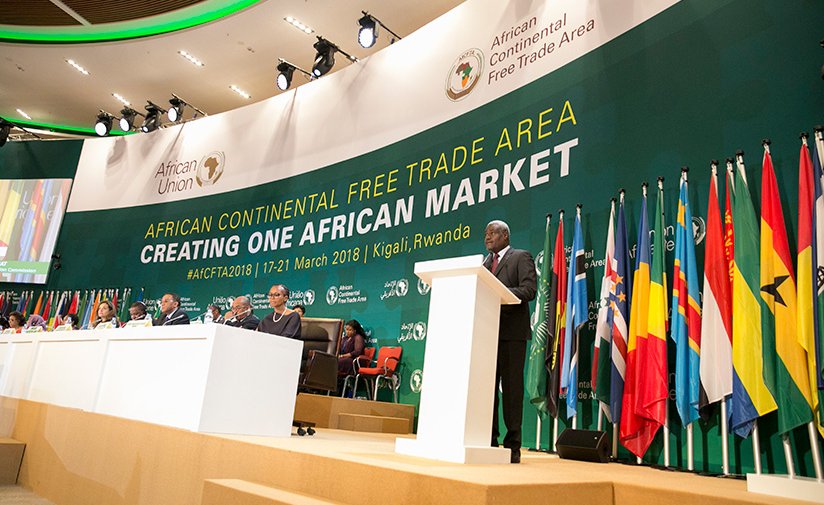For centuries, Africa has been a hub of global trade, from the ancient trans-Saharan routes to the Swahili coast’s maritime commerce. Despite its vast natural wealth, the continent has long struggled to integrate its economies and maximize its trade potential. Now, African Economic Independence Through Trade is becoming a reality, as nations work together to remove barriers, boost regional commerce, and strengthen Africa’s position in the global economy.
What is the African Continental Free Trade Area (AfCFTA)?
The African Continental Free Trade Area (AfCFTA) is the world’s largest free trade agreement, uniting 1.4 billion people across 55 nations with a combined GDP of over $3.4 trillion. Launched in 2021, AfCFTA seeks to eliminate tariffs on 90% of goods, remove long-standing trade barriers, and create a single market for African businesses and industries. (AU Trade & Industry).
Why is AfCFTA Necessary?
Africa’s trade patterns have historically been dictated by external markets. Over 80% of African exports consist of raw materials—oil, minerals, and agricultural goods—which are processed abroad and sold back at significantly higher prices. Meanwhile, intra-African trade remains disproportionately low at just 16%, compared to 70% in Europe and 52% in Asia. This imbalance leaves African economies vulnerable to global market fluctuations and dependent on foreign industries for finished goods. The World Bank estimates that trade reforms in Africa could increase intra-African trade by 52% by 2035 (World Bank Report).
The Colonial Legacy of African Trade
To understand Africa’s modern trade challenges, we must examine its past. Under colonial rule, African infrastructure was designed not to connect African economies, but to extract wealth for European powers. Colonial rulers:
- Built railways and roads that led directly to coastal ports, ensuring raw materials could be shipped abroad.
- Imposed trade restrictions that banned intra-African trade, keeping African nations reliant on European imports.
- Created arbitrary borders through the Berlin Conference of 1884-85, which ignored cultural and economic ties, making cross-border trade more difficult.
After gaining independence, African nations inherited fragmented trade systems that remained dependent on external markets. AfCFTA aims to reverse this trend by reorienting Africa’s trade inward, fostering industrial growth, and empowering African businesses.
How AfCFTA Supports African Economic Independence Through Trade
AfCFTA is a key driver of African Economic Independence Through Trade, expected to boost intra-African trade by over 50%, significantly increasing industrial output, job creation, and investment:
1. Manufacturing & African Economic Independence Through Trade
Africa must move beyond exporting raw materials to focus on value-added industries. Some success stories include:
- Ethiopia’s textile industry, which is rapidly expanding into global markets.
- Rwanda’s domestic smartphone production, positioning it as a leader in African tech manufacturing.
- Nigeria and Ghana’s automotive industries, which are beginning to produce vehicles for African markets.
2. Agriculture & Food Security
With reduced trade barriers, African farmers and agribusinesses will gain access to wider markets, improving food security and boosting rural economies.
3. Digital Trade & E-Commerce
Technology is revolutionizing African trade. Mobile banking, e-commerce, and digital trade platforms like Flutterwave, Jumia, and M-Pesa are making cross-border transactions easier and more efficient. Blockchain technology is also being explored to improve trade transparency and reduce fraud.
Challenges to Achieving African Economic Independence Through Trade
While AfCFTA holds immense potential, several hurdles must be overcome:
- Infrastructure Gaps – Poor roads, outdated rail networks, and limited port facilities create logistical challenges.
- Regulatory Differences – Different national policies can slow down trade integration.
- Political Commitment – African leaders must ensure long-term cooperation and implementation.
The Role of Regional Economic Communities (RECs)
AfCFTA builds upon existing Regional Economic Communities (RECs) such as:
- ECOWAS (West Africa) – Advancing a regional currency and economic policies.
- EAC (East Africa) – Implementing a customs union and common market.
- SADC (Southern Africa) – Driving industrialization and trade expansion.
If these regional agreements align with AfCFTA, Africa could accelerate its path to full economic integration.
The Future of African Economic Independence Through Trade
AfCFTA is more than a trade agreement—it is a blueprint for African Economic Independence Through Trade. By fostering regional trade, industrialization, and digital transformation, Africa has a historic opportunity to reshape its economic landscape for generations to come.
But will African leaders, businesses, and policymakers work together to make this vision a reality?
📌 Related: Fastest Growing Economies in Africa (2025)
📌 Related: AfCFTA & African Trade: Transforming the Continent
